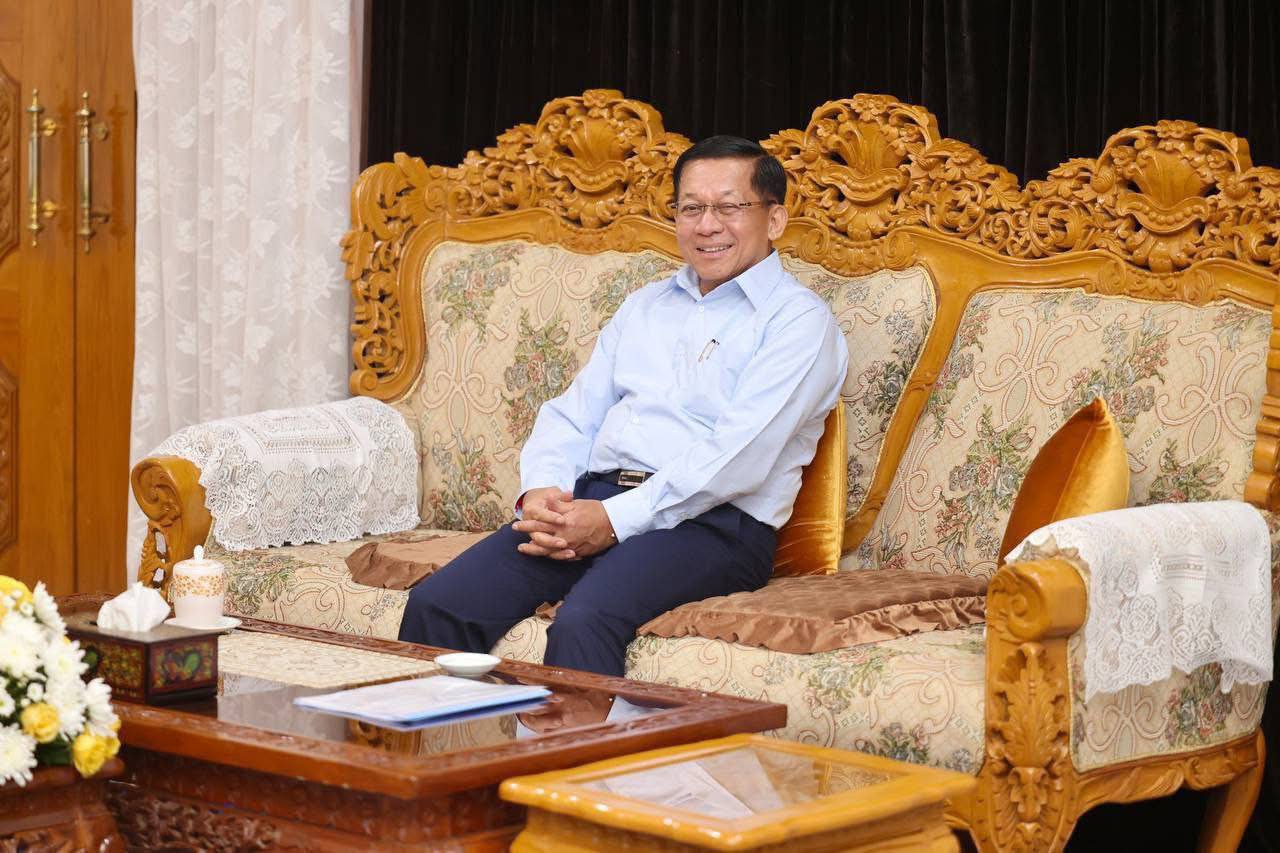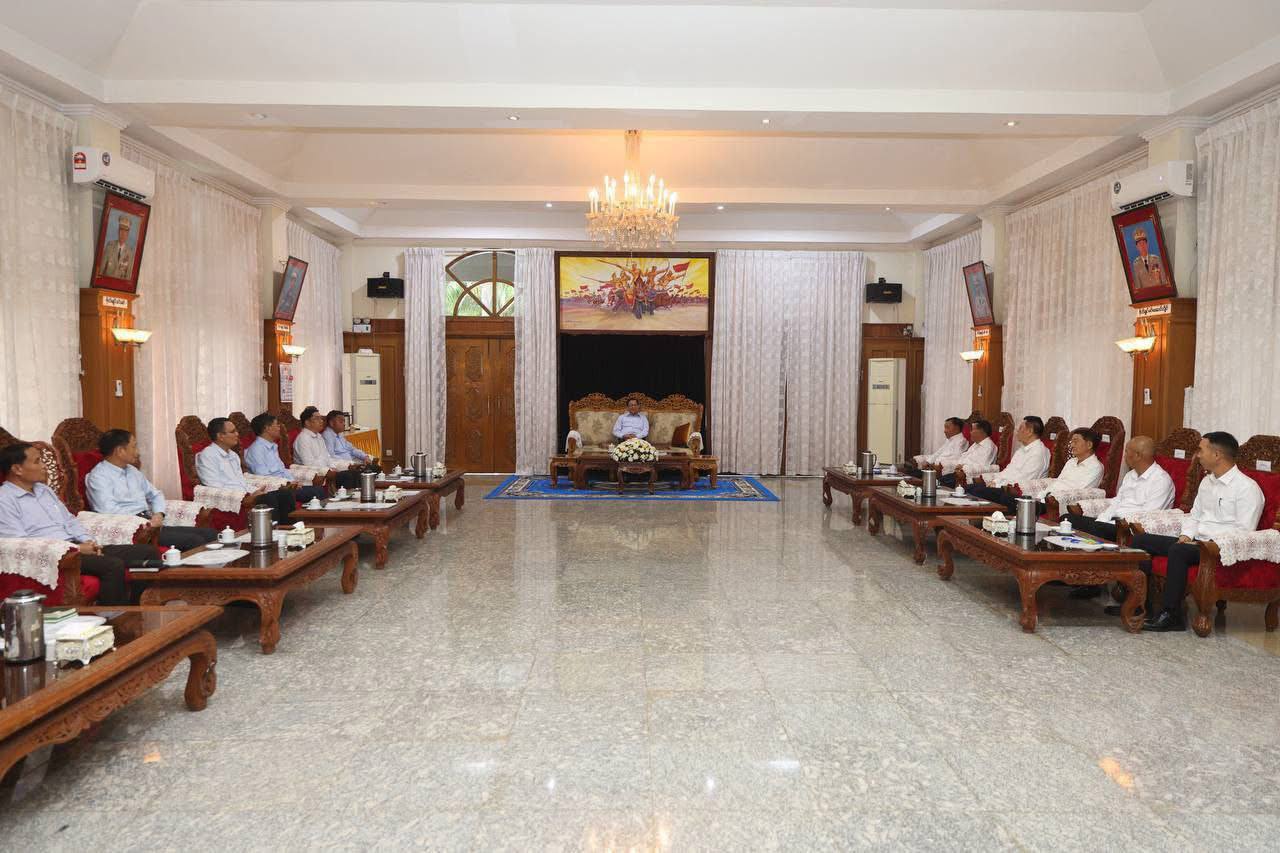CNI News
28 May 2025
The NDAA Vice Chairman U San Pei’s statement that no armed or political organizations have been accepted in the Mongla region of Shan State (East) seems to prioritize stability, U Thein Tun Oo, executive director of the Thayninga Institute for Strategy Studies told CNI News.
A delegation led by vice chairmen of the National Democratic Alliance Army, U San Pei and U San Lu as well as general secretary of the NDAA, U Kyi Myint met and discussed with the SAC chairman Senior General Min Aung Hlaing at the Triangle Command on May 25, 2025.
During the meeting, U San Pei said that no armed groups or political organizations have been accepted in their region. The fact that no armed group or political organization had been accepted in the Mongla region means that only that region guaranteed peace, said U Thein Tun Oo to CNI News.

The SAC chairman
"By saying that the NDAA does not accept any armed group or any political organization, it means that the NDAA only guarantees peace in his own territory. Other armed groups have nothing to do with it. That means that it guarantees the peace that it has made. If all other armed groups have that attitude, the country's permanent peace will be a very smooth and easy process. But one armed group is fighting in its own territory. If the other side comes to conduct military operations, they will go into other areas and hide. If they gather, the armed conflict will be prolonged. So, we can consider the idea that the NDAA can provide guarantees in this regard," he said.
The NDAA's stance was to focus on the Our Three Main National Causes (Non-disintegration of the Union, Non-disintegration of national solidarity and Perpetuation of sovereignty) which have been laid down and practiced for over 30 years by the State for over 30 years, said U San Pei, vice chairman of the NDAA.
Myanmar is a union state and is moving towards a union system based on a truly disciplined multi-party democracy and federalism. Therefore, it is necessary for all ethnic brothers and sisters living in the country to work together for the interests of the country, said the SAC Chairman Senior General Min Aung Hlaing.
The NDAA often accepted refugees who fled their homes due to fighting in Shan State as a humanitarian gesture, said Dr. Hla Kyaw Zaw, a Myanmar-China affairs analyst.

While the SAC chairman was meeting with the NDAA
" Although the NDAA says they haven't accepted any armed group, they have said that they can accept those who flee battles on humanitarian grounds. The NDAA accepted injured people or those who were in bad health from other armed groups. There is an understanding among them. For example, during the MNDAA 1027 fighting, they accepted all the people who fled, all the refugees. The NDAA just sent them to Tangyang and Tachileik by car. They did whatever they could to help the refugees who returned to the mainland," she said.
The NDAA split from the Burma Communist Party and made peace with the Myanmar Tatmadaw on June 30, 1989, and the Myanmar Tatmadaw designated the Mongla region in Shan State (East) as Special Region (4).
AA, KIA, MNDAA and TNLA, that are members of the Federal Political Negotiation and Consultative Committee (FPNCC) in which the NDAA is included as a member, are in heavy fighting with the Myanmar Tatmadaw and they have accepted NUG, PDFs and NUCC which have been declared terrorist groups by the Myanmar Tatmadaw.
Therefore, the NDAA reaffirms that even though some FPNCC members have accepted armed groups and political organizations that the Myanmar Tatmadaw does not approve of, the NDAA has not accepted them, military and political observers said.




